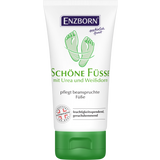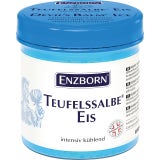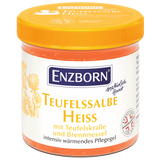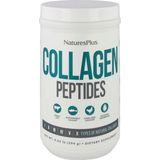Chia Seeds: What Can They Actually Do?
The new super trend and "God" among the superfoods is currently the chia seed. On the Internet you can find countless articles about their excellent properties and positive effects on your health. Once you start reading those articles, you get the feeling that there is nothing that these seeds cannot do. But what about the hard facts? Are promises of the marketing machine true? What can these super foods do in reality? Here is our facts check.
Chia seeds are the seeds of a plant belonging to the sage family that originally grew in Mexico. Since the plant is prone to rot, it only grows in areas where it does not rain a lot. Today the plants are also grown in South American countries and even in Australia. The chia plant is an annual plant that grows up to 1.75 meters high. Its flowers are white or bright blue and the seeds can be white or black.
Chia seeds were a staple for the Aztecs and were also used as a natural remedy. After the destruction of the Aztec Empire, the knowledge of this plant was all but forgotten until a few years ago.
We come now to the ingredients, which are important when looking at the significance of chia seeds.
Fundamentally, chia seeds contain up to 38% chia oil, around 20% protein, and about 40% carbohydrates as well as a whole range of vitamins, minerals, folic acid and antioxidants. So far, this isn't very much information. Flaxseeds for example, have a similar composition.
Chia seeds contain a very high proportion of essential fatty acids. They contain up to 60% omega-3 fatty acids and about 18% Omega-6 fatty acids. Again you can use flaxseed as a comparison because its content is roughly the same.
On closer inspection, however, we do see some unique properties of chia seeds. Although flax and chia seeds at first glance have similar ingredients, the concentration of these ingredients is another story. Chia seeds not only have a higher number of minerals than flaxseeds, but many of these minerals can also be found in a higher concentration. Another advantage is that chia seeds are very durable. At room temperature, they can be stored in a dark place without problems for two to four years. Flaxseed cannot keep that long as it is mainly served crushed.
Conclusion: yes, it's true that chia seeds are healthy and an excellent means to achieving a balanced diet. Their high nutrient density surpasses many other foods and they can make a positive contribution to health. In addition, chia seeds provide variety to your cuisine.
No, it is not true that chia seeds are really the panacea that they are marketed as. Such a thing does not actually exist. Although they are very healthy, some of the properties attributed to them by the media have yet to be proven by science. To date, it has not yet been proven that chia seeds help you lose weight, although this is often claimed.
PS: chia seeds are especially interesting for vegans and vegetarians because they are an excellent protein and calcium source.
Latest reviews
-
 5.0 (1)
5.0 (1)ENZBORN Pretty Feet Cream, 75 ml
-6%- Cream-gel consistency
- With urea, hawthorn, jojoba oil & allantoin
- Absorbs quickly & does not stick
€ 5,51 € 5,89 (€ 73,47 / l)Delivery by April 17
-
 5.0 (4)
5.0 (4)ENZBORN Icy Devil's Salve, 200 ml
- Moisturizes
- Cooling & refreshing
- Can be used with insect bites
€ 8,09 (€ 40,45 / l)Delivery by April 17
-
 € 8,09 (€ 40,45 / l)
€ 8,09 (€ 40,45 / l)Delivery by April 17
-
 4.7 (3)
4.7 (3)NaturesPlus Collagen Peptides, 294 g
- 6 different types of collagen
- Sustainably obtained raw materials
- With an enzyme mixture
€ 38,99 (€ 132,62 / kg)Delivery by April 17
